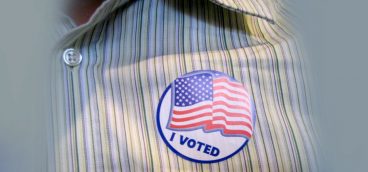Stocks & Pedestal, Spring/Summer 2006
There is a tide in the affairs of leaders. A rising tide, the saying goes, lifts all boats. It’s a low tide that you have to survive, and rare is the leader who doesn’t face one. Jim Rohr’s low tide came in 2002. After the stock market bubble had burst, America was looking for people to blame. Rohr and PNC were caught in the government’s crosshairs for improper accounting.
Times were grim, especially when PNC had to restate earnings twice. Many didn’t expect Rohr to survive. Pressure for his ouster, though, met a wall it couldn’t penetrate: PNC’s board. Rohr kept board members on his side to keep his job. And slowly but surely, Rohr has not only pulled PNC through the tough times, but brought it to record profitability.
He’s also established himself as the leading corporate executive in Pittsburgh.
As chairman of the Cultural Trust, he brought Kevin McMahon to town, an excellent choice. In November, he became chairman of the Allegheny Conference on Community Development. Not content to merely hold that post in a ceremonial manner, Rohr is reinvigorating the Conference, narrowing its focus and pushing for results.
In December, he announced that PNC would build a 25- to 30-story Downtown skyscraper. Completion of the $170 million project, which will have Reed Smith as its anchor tenant, is expected in 2008, Pittsburgh’s 250th birthday. It was a bold stroke that made a statement: “We’re not letting Downtown slip more. We’re moving it ahead.”
Finally, in February PNC inked a blockbuster deal with Merrill Lynch and Blackrock that brings the bank a windfall of nearly $2 billion. Perhaps most important, the deal makes PNC much more likely to remain a longtime Pittsburgh presence.
In the stocks: Let’s get our money’s worth from the casinos
We don’t think state-sponsored gambling is going to make Pennsylvania a more competitive place to do business or a better place to live. Don’t get us wrong, gambling’s fun in small doses. Whether it’s slots, blackjack or the roulette wheel, if you’re winning, it’s great. Usually, you lose more. Usually, though, an evening amid the bells and lights of a windowless casino means deciding just how much you’re going to lose to the operators and trying to stick with your decision. Of course, a lot of people can’t, which is what gives casinos their depressing aspect.
Also, let’s face it, hypocrisy abounds when a government imprisons people for running small-time gambling rings but rewards big-time operators and campaign contributors with licenses to make millions legally. Should gambling be a crime? Should it only not be a crime if the government’s involved?
Clearly, Pennsylvania’s getting into gambling for the same reason the mob did: Times are tough, and it’s easy money. It will help pay for programs without raising taxes. That makes sense. The trouble is, the state isn’t getting enough money. That’s why we’re putting the project in the pillory. We believe Pennsylvania should have required an upfront payment of $300 million or so from whomever wins the license. Clearly that figure isn’t too high if Isle of Capri is willing to pay that much voluntarily for a new arena for the Penguins. If the state is going to bring casinos into our community, it should maximize the return.





